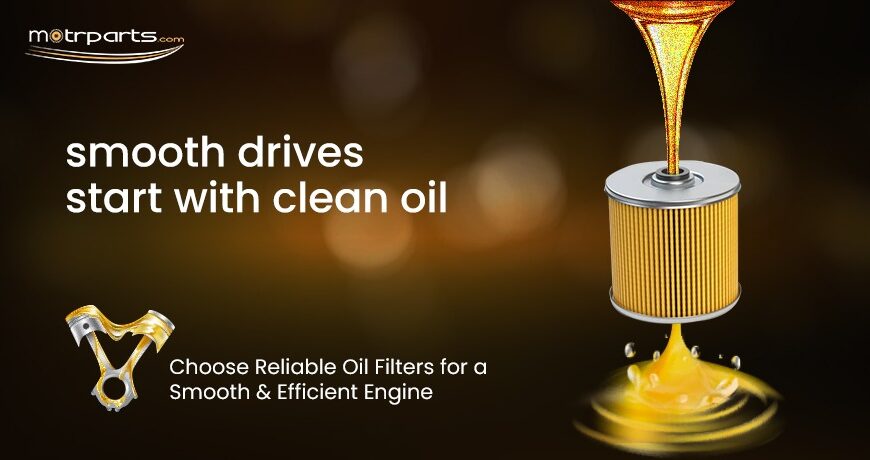When it comes to maintaining your vehicle’s performance, few components are as crucial as the car oil filter. Often overlooked, the oil filter is a vital part of your engine’s health, ensuring that the engine runs smoothly and efficiently. By filtering out harmful contaminants and debris, the oil filter helps maintain the integrity of the engine oil, which in turn keeps your engine running at its best.
In this article, we’ll delve into the importance of car oil filters, how they work, and why choosing the right one is essential for your vehicle’s longevity.
The Role of Car Oil Filters
A car oil filter is designed to remove contaminants from the engine oil that can accumulate over time. These contaminants include metal shavings, dirt, and carbon particles that can cause wear and tear on the engine’s components. By keeping the oil clean, the filter ensures that the engine parts are lubricated properly, reducing friction and preventing potential damage.
How Oil Filters Work
The process begins when engine oil passes through the oil filter. Inside the filter, a series of tiny fibers trap impurities, allowing only clean oil to flow through. This filtration process is crucial for maintaining the engine’s efficiency and preventing any blockages that could hinder performance. Over time, as the filter accumulates debris, its effectiveness decreases, which is why regular replacement is necessary to ensure optimal performance.
Types of Car Oil Filters
Understanding the different types of car oil filters available on the market is essential for making the right choice for your vehicle. Here are some of the most common types:
- Spin-on Oil Filters:
- Design: These are the most traditional type of oil filters and are designed to be easily replaced. They have a metal canister that is unscrewed and replaced with a new one during an oil change.
- Pros: Easy to install and replace.
- Cons: Can be more costly over time compared to replaceable element filters.
- Cartridge Oil Filters:
- Design: Unlike spin-on filters, cartridge oil filters use a replaceable filter element that is placed into a reusable housing. This makes them more environmentally friendly.
- Pros: Less waste, often provides better filtration.
- Cons: Replacement can be a bit more complex.
- Magnetic Oil Filters:
- Design: These filters use magnets to attract metallic debris from the oil. They are often used in conjunction with traditional filters.
- Pros: Excellent for removing metal particles, extending the life of the filter.
- Cons: Not effective against non-metallic contaminants.
- High-Efficiency (HE) Oil Filters:
- Design: These are designed to capture smaller particles and provide superior filtration.
- Pros: Best for high-performance vehicles, superior engine protection.
- Cons: Usually more expensive than standard filters.
Importance of Regular Oil Filter Maintenance
Regular maintenance and replacement of your car oil filter are crucial for ensuring that your engine runs smoothly. Neglecting this simple maintenance task can lead to a host of problems, including reduced fuel efficiency, increased emissions, and even engine damage. Here’s why regular oil filter changes are important:
- Engine Protection: Over time, the oil filter becomes saturated with debris, reducing its effectiveness. A clogged filter can restrict oil flow, leading to inadequate lubrication and increased engine wear.
- Improved Performance: A clean oil filter ensures that only clean oil circulates through the engine, reducing friction and allowing the engine to perform optimally.
- Extended Engine Life: By protecting the engine from harmful particles, regular oil filter maintenance can extend the life of your vehicle’s engine, saving you money in the long run.
How to Choose the Right Oil Filter
Choosing the right oil filter for your vehicle is essential for maintaining its performance. Here are some factors to consider when selecting an oil filter:
- Compatibility: Ensure the oil filter is compatible with your vehicle’s make and model. Refer to your owner’s manual or consult with a professional mechanic if unsure.
- Quality: Opt for high-quality filters from reputable brands. While cheaper options may seem tempting, they often compromise on filtration efficiency and durability.
- Type: Consider the type of filter that suits your driving needs. If you drive a high-performance vehicle, a high-efficiency filter may be more appropriate.
- Climate and Driving Conditions: If you frequently drive in dusty or extreme conditions, you might need an oil filter with better filtration capabilities.
Conclusion
In conclusion, car oil filters are indispensable components that play a crucial role in ensuring the smooth running of your engine. They protect the engine from harmful contaminants, improve performance, and extend the engine’s lifespan. Regular maintenance and choosing the right oil filter for your vehicle are essential steps in keeping your car running efficiently.
At Motrparts.com, we offer a wide range of high-quality oil filters to suit every vehicle type and driving condition. Our selection includes filters from top brands known for their reliability and performance. By choosing the right oil filter, you’re investing in your vehicle’s longevity and ensuring a smoother driving experience.
Take the time to understand your vehicle’s needs and consult with experts if necessary. By doing so, you’ll keep your engine in peak condition and enjoy a smoother, more efficient ride for years to come. Don’t overlook the importance of car oil filters – they truly are the key to a smooth-running engine.

